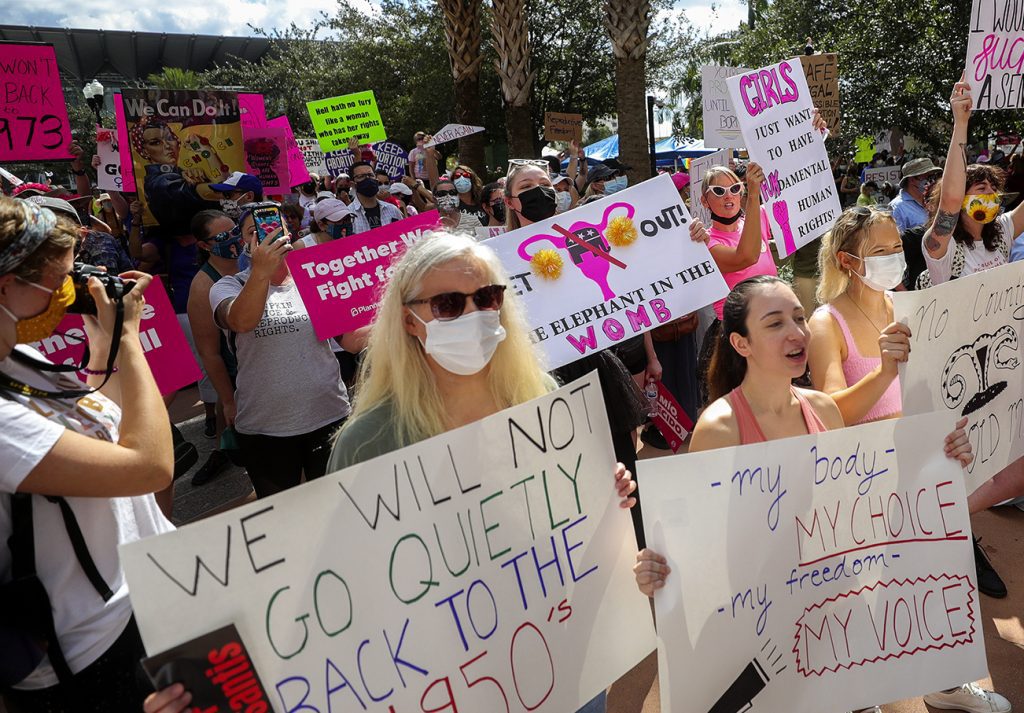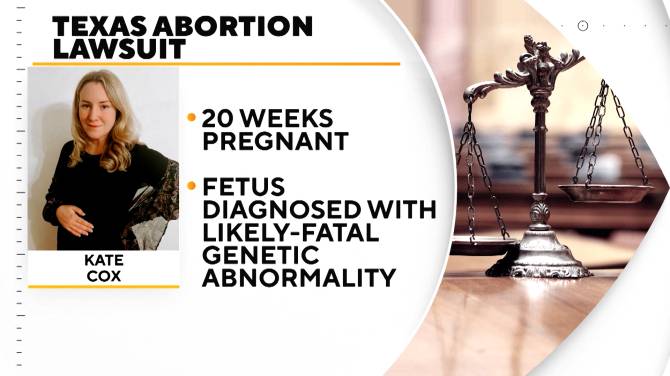The Florida The Supreme Court, on Monday, has given approval for the state to ban abortions. abortions It would be prohibited after six weeks of pregnancy, which is before many women realize they are pregnant. At the same time, voters will have an opportunity to remove restrictions in November.
The court, which was influenced by former presidential candidate and Republican Governor Ron DeSantis, made the decision 6-1 in favor of upholding the state's ban on most abortions after 15 weeks of pregnancy, potentially allowing the ban on six weeks to be implemented soon. However, in a separate 4-3 ruling, the court permitted a ballot measure to go to voters that would safeguard abortion rights in Florida’s constitution. Ron DeSantis, who took office in 2019, appointed five of the court’s seven justices. The 15-week ban, enacted by DeSantis in 2022, has been enforced during the legal challenge. The six-week ban, which was passed by the Legislature last year, was written in a way that it would not come into effect until a month after the 2022 law was upheld.
Planned Parenthood, the American Civil Liberties Union, and others contested the law in court. They argued that the Florida Constitution’s unique privacy clause has explicitly protected the right to abortion in the state for more than 40 years and should continue to do so.
The justices agreed, saying that when voters approved the privacy clause, they didn’t know it would affect abortion laws.
Lawyers representing the state, however, claimed that when the privacy clause was adopted by voter referendum in 1980, few people understood it would cover abortion. They informed the justices that the clause was primarily meant to cover “informational privacy” such as personal records and not abortion.
The Florida Access Network intends to alter its approach from providing abortion care for women in Florida to funding their travel expenses to go out of state, according to Stephanie Loraine Pineiro, the executive director of the advocacy group.
The court wrote, “The debate — as framed to the public — overwhelmingly associated the Privacy Clause’s terms with concerns related to government surveillance and disclosure of private information to the public. Prolife and prochoice groups did not join in the fray. These groups are not politically bashful— not now, and not in 1980.”
Abortion rights supporters were disappointed by the ruling.
Democratic Rep. Anna Eskamani expressed, “This decision shows how uncertain our personal freedoms are in this state. It’s so extreme that you’re going to see Floridians having to go out of state, probably to Virginia, to get care.”
The proposed constitutional amendment that will be on the November ballot states that “no law shall prohibit, penalize, delay, or restrict abortion before viability or when necessary to protect the patient’s health, as determined by the patient’s healthcare provider.” It includes one exception from the state constitution, which requires parents to be informed before their minor children can undergo an abortion.
Since the U.S. Supreme Court overturned Roe v. Wade in June 2022, most Republican-controlled states have implemented bans or limitations on abortions. Every ban has been challenged in court.
A study of abortion providers conducted for the Society of Family Planning, which supports abortion access, discovered that Florida had the second-largest rise in the overall number of abortions provided since Roe v. Wade was overturned. The state’s data indicates that over 7,700 women from other states received abortions in Florida in 2023.
Fourteen states, including nearby Alabama, Louisiana and Mississippi, now have prohibitions on abortion at all points of pregnancy, with restricted exceptions. Georgia and South Carolina forbid it once cardiac activity can be detected, which is generally around six weeks into pregnancy.
The Florida Supreme Court ruled 6-1 to uphold the state’s restriction on most abortions after 15 weeks of pregnancy, meaning a restriction on six weeks could soon take effect.
A survey of abortion providers conducted for the Society of Family Planning, which advocates for abortion access, found that Florida had the second-largest increase in the total number of abortions provided since Roe v. Wade was overturned. The state’s data shows that more than 7,700 women from other states received abortions in Florida in 2023.
Fourteen states, including nearby Alabama, Louisiana and Mississippi, now have bans on abortion at all stages of pregnancy, with limited exceptions. Georgia and South Carolina bar it once cardiac activity can be detected, which is generally considered to be around six weeks into pregnancy.
—





